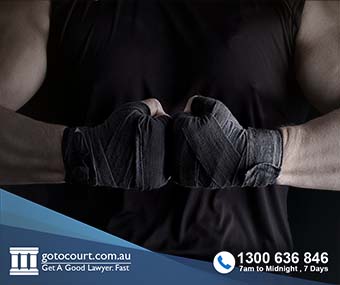Search Warrants in South Australia
Police officers in South Australia have a broad range of powers which enable them to ascertain whether a person has committed, or have been involved in the commission of, a crime. However, if they wish to search your house or other belongings, they will generally need a search warrant to do so. This article deals with search warrants in South Australia.
Legislation
The most common search warrant that is obtained by police in SA is a general search warrant under section 67 of the Summary Offences Act 1953). Other kinds of search warrants may be issued pursuant to Part IAA of the Crimes Act 1914 (Cth) for Commonwealth offences (e.g. terrorism offences), the Criminal Assets Confiscation Act 2005 for seizing proceeds of crimes, and the Criminal Investigation (Extraterritorial Offences) Act 1984 for investigating crimes committed in other states and territories.
General search warrants
General search warrants allow the police officer named in the warrant to search a place or premises (including your home), and any things in those premises (e.g. chests or cupboards) if they have reasonable cause to suspect that you have stolen goods, you have committed a crime or plan to commit a crime, have anything that may be used in committing a crime, or for collecting evidence of a crime that has been committed. Any things or goods may be seized by the police officer.
A general search warrant is issued by the Commissioner of Police in his or her discretion and lasts for a duration of six months, unless the warrant is specified as having a shorter duration. As such, provided a police officer has reasonable cause to suspect any of the matters previously mentioned, a police officer may obtain a general search warrant before you are charged of committing a crime. Importantly, the police do not need a general search warrant to search your car, any other vessel, your person, or your property if they reasonably suspect that a stolen vehicle is on your property.
Search warrants for Commonwealth offences
If you are suspected of committing or of planning to commit a Commonwealth offence (for example, terrorism or treason), then either a police officer of South Australia or a member of the Australian Federal Police may request that a magistrate or a justice of the peace issue a search warrant allowing them to search your home, your car or your person (your body, eg by a frisk search) for evidence. Such a request can be made via telephone in urgent cases.
The warrant can be in effect for a maximum of seven days and will specify, amongst other things, the offence to which it relates and the premises which are the subject of the warrant. If the warrant relates to your house and you are home when the police arrive, you should receive a copy of the warrant. Reasonable use of force and assistance from other police officers are both permitted under such a warrant, as is the taking of photographs and video recordings if necessary. The police may also access your computer and remove it from the premises if they find evidence on your hard drive. You are entitled to be present during such searches, and may seek reasonable compensation if damage is caused to any of your equipment (including your computer).
Search warrants for seizing proceeds of crimes
A police officer or the Department of Public Prosecutions may also apply to a magistrate for a search warrant for the purposes of seizing the proceeds of a crime, any instrument used in connection with a crime, or proceeds you derive from commercially exploiting any notoriety you receive from committing a crime. An application for such a warrant is made personally or via telephone if required urgently, and expires after one month. The warrant will authorise the searching of premises, the searching of your person or both. If the police require assistance for accessing a computer or computer system, they may also seek an order from a magistrate requiring a particular person to assist. If you hinder the execution of the warrant, you will commit an offence punishable by a maximum penalty of $2,500 or six months imprisonment.
Search warrants for investigating extraterritorial crimes
A magistrate may also issue a police officer with a warrant to search your home in South Australia if they have reasonable grounds to believe that you committed an offence in another State and Territory, and there is anything relevant to that investigation in your home. Similar to the warrants above, an application for a warrant may be made via telephone if required urgently, and will expire after one month. If you hinder the execution of such a warrant, you will commit an offence with a maximum penalty of $2000 or six months imprisonment.
If you require legal advice or representation in any legal matter, please contact Go To Court Lawyers.






